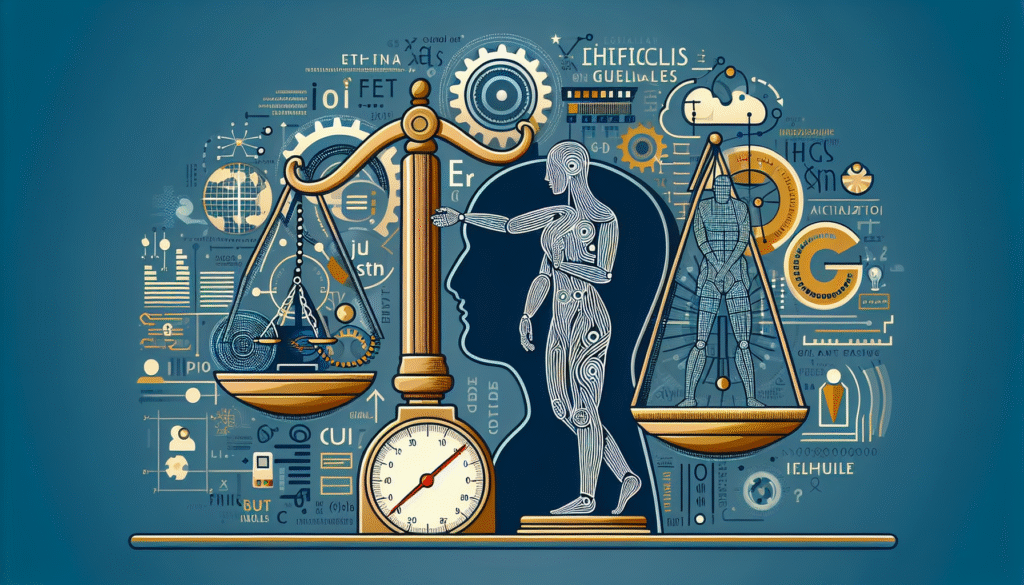
The Ethical Minefield of Artificial Intelligence
Artificial intelligence (AI) is rapidly transforming our world, permeating everything from healthcare and finance to transportation and entertainment. This pervasive integration brings unprecedented opportunities, but also raises complex ethical dilemmas that demand careful consideration. Understanding these challenges is crucial for navigating the future responsibly.
Bias and Discrimination: The Algorithmic Shadow
AI systems learn from vast datasets, and if these datasets reflect existing societal biases, the algorithms will inevitably perpetuate and even amplify them. This can lead to discriminatory outcomes in areas like loan applications, hiring processes, and even criminal justice. Imagine a facial recognition system trained predominantly on images of white faces, misidentifying individuals from other ethnic backgrounds with alarming frequency. Addressing this requires meticulous data curation, algorithmic transparency, and ongoing monitoring for bias.
Privacy and Surveillance: The Data Dilemma
AI thrives on data, often requiring access to personal information to function effectively. This raises concerns about privacy violations and the potential for mass surveillance. Smart speakers listening in our homes, facial recognition software tracking our movements, and algorithms analyzing our online behavior all contribute to a growing sense of unease. Balancing the benefits of AI with the right to privacy necessitates robust data protection regulations, clear consent protocols, and the development of privacy-preserving AI techniques.
Job Displacement: The Automation Anxiety
As AI-powered automation becomes increasingly sophisticated, fears surrounding job displacement are growing. While some argue that AI will create new jobs, others worry about the potential for widespread unemployment and economic inequality. Reskilling initiatives, social safety nets, and a focus on human-AI collaboration are crucial for mitigating these risks and ensuring a just transition in the age of automation.
Accountability and Transparency: The Black Box Problem
Many AI systems, particularly deep learning models, operate as “black boxes,” making it difficult to understand how they arrive at their decisions. This lack of transparency poses challenges for accountability. If an autonomous vehicle causes an accident, who is responsible? The programmer, the manufacturer, or the AI itself? Establishing clear lines of responsibility and developing explainable AI (XAI) are vital for building trust and ensuring that AI systems are used ethically.
Autonomous Weapons Systems: The Moral Crossroads
Perhaps the most contentious ethical debate surrounding AI revolves around the development of autonomous weapons systems (AWS). These weapons, capable of making life-or-death decisions without human intervention, raise profound moral questions. Critics argue that AWS pose an existential threat, potentially leading to unintended consequences and escalating conflicts. International agreements and ethical guidelines are urgently needed to prevent an AI arms race and safeguard humanity.
The Human-Machine Relationship: Redefining Ourselves
AI is not just a tool; it’s increasingly becoming a partner, collaborator, and even companion. This evolving relationship raises fundamental questions about what it means to be human. As AI systems become more sophisticated, blurring the lines between human and machine intelligence, we need to carefully consider the psychological and societal implications. How will AI impact our sense of identity, our relationships, and our understanding of consciousness?
The Role of Regulation and Governance: Shaping the Future of AI
Developing ethical guidelines and regulations for AI is a complex undertaking, requiring collaboration between governments, industry leaders, researchers, and civil society. A balanced approach is needed, fostering innovation while mitigating risks. Regulations should address issues like bias, privacy, accountability, and safety, while also promoting ethical AI development and deployment.
Education and Awareness: Empowering Informed Decision-Making
Promoting widespread education and awareness about AI ethics is crucial for empowering individuals to make informed decisions. This includes educating the public about the potential benefits and risks of AI, fostering critical thinking skills, and encouraging responsible AI development and use.
Interdisciplinary Collaboration: Bridging the Gap
Addressing the ethical challenges of AI requires a multidisciplinary approach, bringing together experts from computer science, philosophy, law, sociology, psychology, and other fields. This collaborative effort is essential for developing holistic solutions and navigating the complex ethical landscape of AI.
The Ongoing Evolution of AI Ethics: A Continuous Conversation
The ethical considerations surrounding AI are not static; they are constantly evolving alongside the technology itself. As AI continues to advance, new ethical dilemmas will undoubtedly emerge. Engaging in ongoing dialogue, research, and reflection is crucial for ensuring that AI remains a force for good in the world. This requires a commitment to ethical principles, a willingness to adapt to change, and a shared vision for a future where AI benefits all of humanity.















